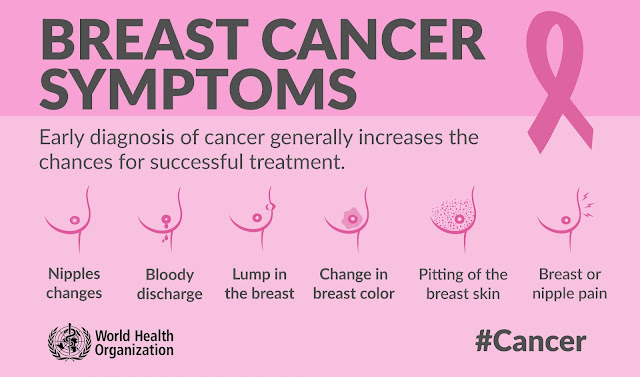Breast Cancer: Awareness, Early Detection, and Hope
Breast cancer is the most common invasive cancer among women globally, affecting millions each year. While the disease can be daunting, advancements in diagnosis and treatment offer a hopeful outlook, especially with early detection.
Understanding Breast Cancer:
Breast cancer arises from uncontrolled growth of abnormal cells in breast tissue. These cells can form tumors, which may or may not be cancerous. There are various types of breast cancer, with some more aggressive than others.
Risk Factors:
While the exact cause remains unknown, several factors increase breast cancer risk:
- Age: Risk increases with age, especially after 50.
- Family history: Having a close relative with breast cancer raises your risk.
- Genetic mutations: Certain gene mutations, like BRCA1 and BRCA2, significantly elevate risk.
- Hormones: Long-term hormone replacement therapy and early menstruation/late menopause can contribute.
- Lifestyle factors: Obesity, lack of physical activity, and excessive alcohol consumption increase risk.
Signs and Symptoms:
Early detection is crucial for successful treatment. Here are some common signs to be aware of:
- A lump in the breast or armpit
- Changes in breast size or shape
- Dimpling or puckering of the breast skin
- Nipple retraction (inward turning)
- Nipple discharge, especially bloody discharge
- Changes in the texture of the breast skin
Importance of Early Detection:
Regular self-examinations and mammograms are key to early detection. Mammograms use low-dose x-rays to detect abnormalities in breast tissue, often before symptoms appear. The American Cancer Society recommends starting regular mammograms at age 45.
Treatment Options:
Treatment for breast cancer depends on the stage and type of cancer. Common options include:
- Surgery: This may involve removal of the lump, part of the breast (lumpectomy), or the entire breast (mastectomy).
- Radiation therapy: High-energy rays kill cancer cells and may be used after surgery to reduce the risk of recurrence.
- Chemotherapy: Powerful drugs target and destroy cancer cells throughout the body.
- Hormonal therapy: For certain types of breast cancer, medication can block hormones that fuel cancer cell growth.
Living with Breast Cancer:
Breast cancer can be a life-altering experience, but with proper treatment and support, many women live long and fulfilling lives. Support groups and resources can help manage emotional well-being and navigate the challenges of treatment.
Hope and the Future:
Research in breast cancer continues to make significant strides. New treatment options emerge constantly, offering better outcomes and improving quality of life for patients.
Remember: Early detection is the most significant factor in successful breast cancer treatment. Be aware of your body, conduct regular self-examinations, and schedule mammograms as recommended by healthcare professionals. With vigilance and access to appropriate healthcare, breast cancer can be overcome.

No comments:
Post a Comment